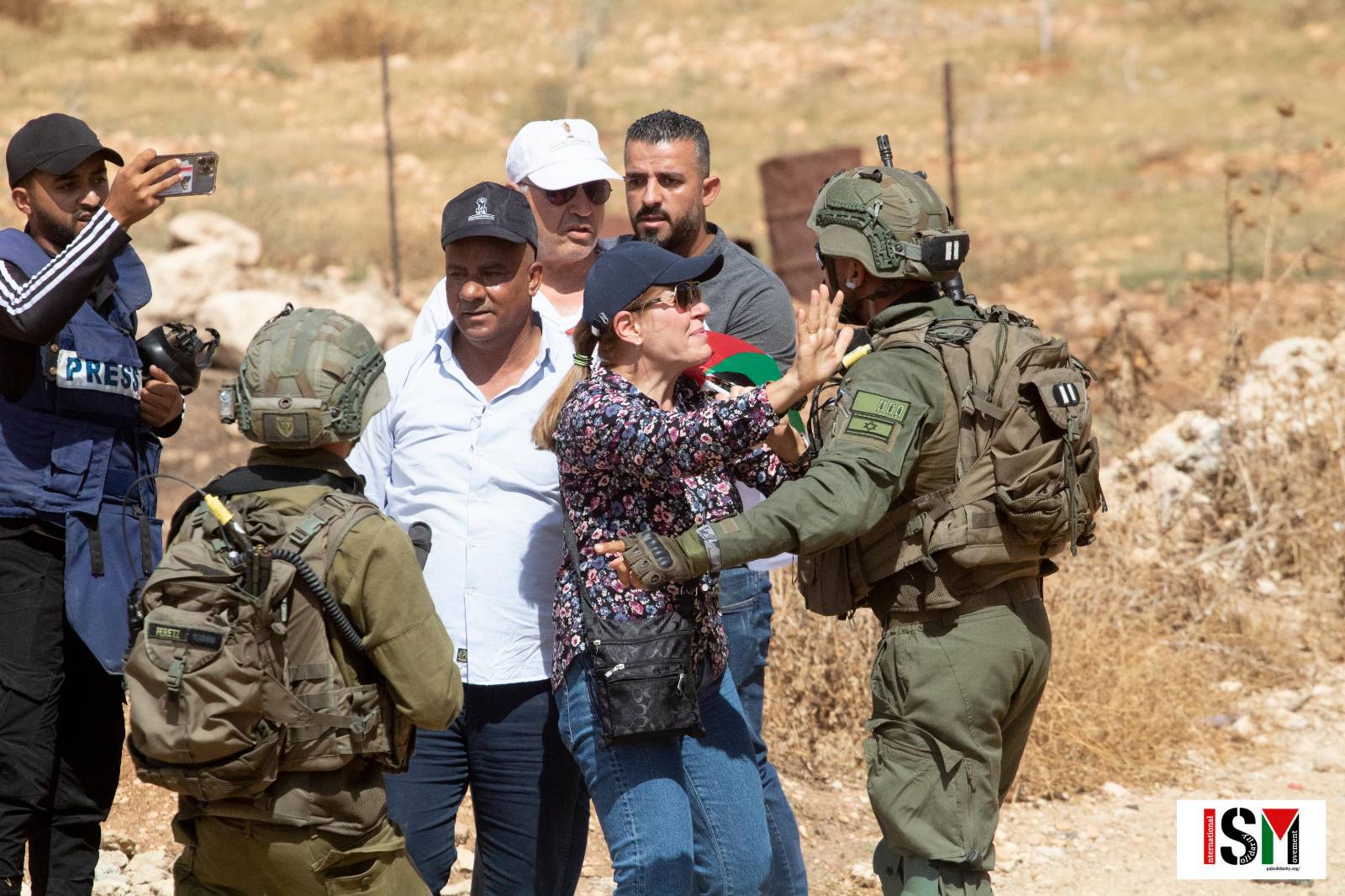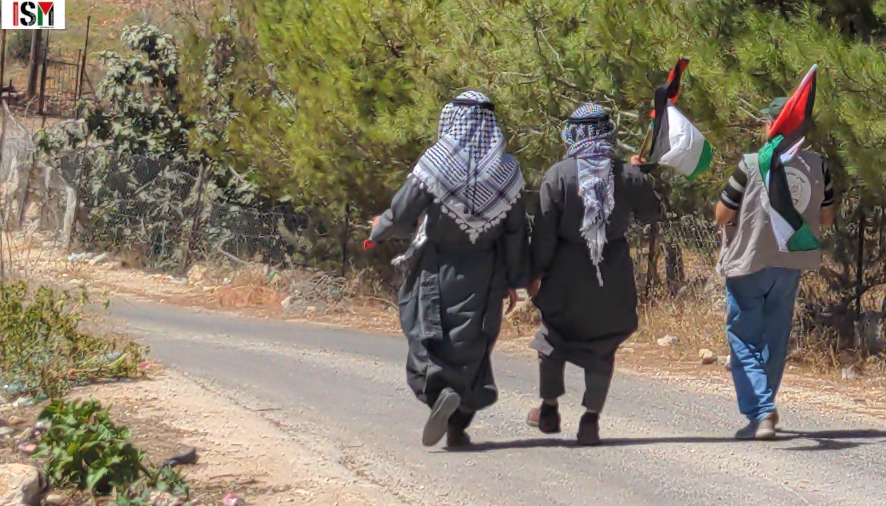Tag: Nablus
-
Endless Israeli military campaigns in Tulkarem
By. Diana Khwaelid Tulkarm – 5-10-2023 A rapid military operation carried out by the Israeli occupation forces in Tulkarem camp at dawn today, around 5 a.m. Dozens of Israeli military vehicles stormed Tulkarem camp in the centre of the city, in the northern West Bank. Strong confrontations and clashes broke out between Palestinian militants who…
-
Beit Dajan faces the occupation
By. Diana khwaelid for ISM Palestinian activists marked the third consecutive anniversary of the revival of national events to resist the occupation of the lands of Beit Dajan – east of Nablus. At noon on Friday-2-9-2023, Palestinians set off to participate in the weekly march from the village of Beit Dajan to the illegal outpost…
-
Palestinians in Qaryut reassert their right to visit their spring, despite IOF violence
On Friday 15th of September the people of Qaryut – a village between Nablus and Ramallah – held a demonstration reasserting their rights over the village spring. The village is close to the illegal settlements of Eli and Shilo, and every Friday settlers come to wash in the spring. This is a clear act of…



